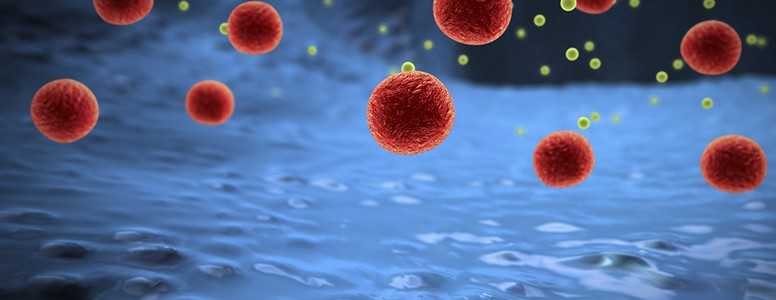Researchers in France have discovered a new gut microbe that could improve metabolic health and body fat distribution in people with obesity. The results are published in the journal Gut.
The study finds that Akkermansia muciniphila, a bacterium that makes up around three to five per cent of a healthy gut microbiomen, is linked to lower blood glucose and a healthier distribution of body fat.
Previous research has indicated that the gut microbiome could have a significant effect of the development of obesity and obesity-related conditions such as type 2 diabetes. In November 2014, researchers used a bacterium called Christensenellaceae minuta to reduce weight gain in a group of mice.
The research was conducted using 49 participants. 11 of them were overweight, and 38 were obese.
The participants were put on a low-calorie diet with added protein and fibre, which they followed for six weeks. Each participant then ate a stabilisation diet for the next six weeks. The purpose of a low-calorie diet, the researchers noted, was the alter gut bacteria composition.
The researchers collected blood samples from the participants in order to test their blood glucose levels, lipid levels (including cholesterol) and triglyceride levels.
In addition, the participants’ fecal samples were examined in order to assess the presence of A. muciniphila in their guts.
The study concludes that the participants with the highest levels of A. muciniphila had lower blood glucose and insulin levels. They also had lower cholesterol levels.
The healthiest participants were those with high levels of A. muciniphila and diverse gut bacteria.
The researchers, led by Professor Karine Clément of the Institute of Cardiometabolism and Nutrition (ICAN), the INSERM/University of Paris, and Pitié-Salpêtrière Hospital, argue that their research confirms what studies on mice had suggested.
“In conclusio, we demonstrated a significant association between A. muciniphila abundance and metabolic health and we provide a first view of A. muciniphila association with the gut ecosystem,” they wrote.
“Collectively, these observations demonstrate the importance of studying A. muciniphila in the context of the gut environment, as it may drive a favourable or deleterious contribution of A. muciniphila to health.”
What's new on the forum? ⭐️
Get our free newsletters
Stay up to date with the latest news, research and breakthroughs.







